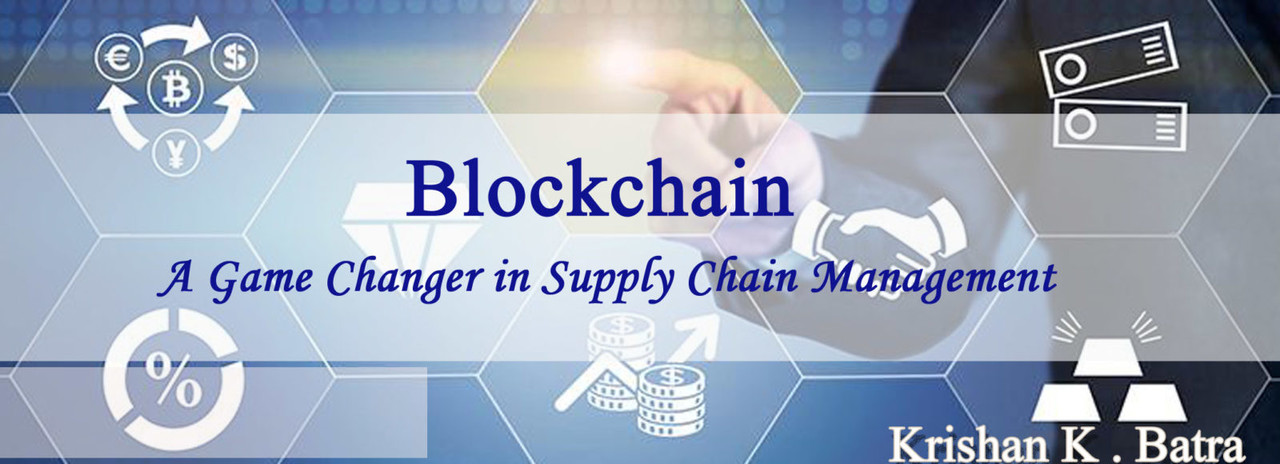Blockchain isn’t a household buzzword but is a “Poster Boy” technology of Bitcoin which is known widely. The exciting thing is that the blockchain protocol can be used for non-currency purposes as well.
Blockchain has the potential to transform the procurement & supply chain. In fact, some are calling it the most important invention since the Internet itself. From conducting payment and audits to tracking inventory and assets, blockchain technology will enable greater supply chain efficiency than ever before.
Blockchain signals the beginning of a new era of the internet that will be defined by value rather than information. The World Economic Forum selected blockchain as one of the Top Ten Emerging Technologies, based on its potential to fundamentally change the way economies work.
What is Blockchain?
Blockchain is a distributed database that maintains a shared list of records of digital data or events. These records are called blocks, and each encrypted block of code contains the history of every block that came before it with timestamped transaction data down to the second. In effect, you know, chaining those blocks together. Hence blockchain. For analogy one can compare blockchain with a notebook where each page is like a block.

A blockchain is made up of two primary components: a decentralized network facilitating and verifying transactions, and the immutable ledger that network maintains. Everyone in the network can see this shared transaction ledger, but there is no single point of failure from which records or digital assets can be hacked or corrupted. Because of that decentralized trust, there’s also no one organization controlling that data. No third-parties serving as the gatekeepers of the internet. The power of blockchain’s distributed ledger technology has applications across every kind of digital record and transaction, and we’re already beginning to see major industries leaning into the shift.
The blockchain is public: anyone can view it at any time because it resides on the network… and the blockchain is encrypted… it uses public and private keys (rather like a two-key system to access a safety deposit box) to maintain virtual security.”
In short, blockchain is a record-keeping mechanism that makes it easier and safer for businesses to work together over the internet. the rise of blockchain-based smart contracts turns blockchain into a middleman to execute all manner of complex business deals, legal agreements, and automated exchanges of data.
How Will Blockchain Technology Affect the Supply Chain?
As blockchain technology allows us to more securely and transparently track all types of transactions, imagine the possibilities it presents across the supply chain. Every time a product changes hands, the transaction could be documented, creating a permanent history of a product, from manufacture to sale. This could dramatically reduce time delays, added costs, and human error that plague transactions today. Typical Supply Chain is as follows:

Some supply chains are already using the technology, and experts suggest blockchain could become a universal “supply chain operating system” before long. Consider how this technology could improve the following tasks in the supply chain:
- Recording the quantity and transfer of assets—like pallets, trailers, containers, etc.—as they move between supply chain nodes.
- Tracking purchase orders, change orders, receipts, shipment notifications, or other trade-related documents.
- Assigning or verifying certifications or certain properties of physical products; for example determining if a food product is an organic or fair trade.
- Linking physical goods to serial numbers, bar codes, digital tags like RFID, etc.
- Sharing information about manufacturing process, assembly, delivery, and maintenance of products with suppliers and vendors
Benefits in a Nutshell
Regardless of the application, blockchain offers shippers the following advantages:
- Enhanced Transparency. Documenting a product’s journey across the supply chain reveals its true origin and touchpoints, which increases trust and helps eliminate the bias found in today’s opaque supply chains. Manufacturers can also reduce recalls by sharing logs with OEMs and regulators.
- Greater Scalability. Virtually any number of participants, accessing from any number of touchpoints, is possible.
- Better Security. A shared, indelible ledger with codified rules could potentially eliminate the audits required by internal systems and processes.
- Increased Innovation. Opportunities abound to create new, specialized uses for the technology.
Future of Blockchain Technology:
Many organizations are finding ways to leverage these innovations to increase profits and strengthen relationships across the supply chain. They’re also partnering with forward-thinking service providers who value transparency and innovation and understand blockchain’s potential.
At the same time, dozens of start-ups are using the technology for everything from global payments to music sharing, from tracking diamond sales. That’s why blockchain’s potential is so vast: When it comes to digital assets and transactions, you can put absolutely anything on a blockchain.
A host of economic, legal, regulatory, and technological hurdles must be scaled before we see widespread adoption of blockchain technology, but first movers are making incredible strides. Some UN organizations are also undertaking initiatives to make effective use of blockchain technology in their projects.
Within the next handful of years, large swaths of your digital life may begin to run atop a blockchain foundation—and you may not even realize it.


